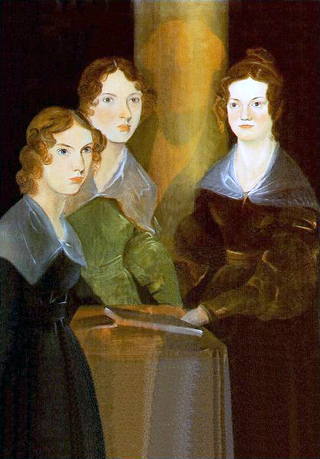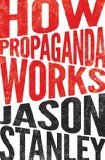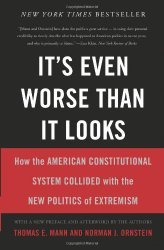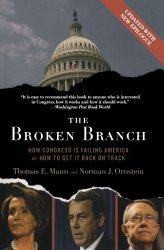John G. Messerly's Blog, page 105
October 27, 2015
50th Wedding Anniversary

My parents on their wedding day in St. Louis, October 27, 1938
Yesterday is but today’s memory, and tomorrow is today’s dream. ~ Kahil Gibran
The last wedding anniversary my parents celebrated was their fiftieth, in 1988. I remember all my siblings and I pitched in to send them on a vacation. They never made it; my dad died just two months later. But they had a good marriage; their love satisfied and comforted them—it was sufficient in its own time.
As for marriage in general, it is hard to talk sensibly for, as George Bernard Shaw noted, “There is no subject on which more dangerous nonsense is talked and thought than marriage.” Will Durant wrote somewhere that no institution was so designed for unhappiness as marriage—and this from a man happily married for 68 years. All I can say is that anyone happily married for 50 years has succeeded in one of the hardest jobs in the world: living and loving a single person for a half a century. That is no small feat.
So if your parents or friends are celebrating 50 or more years of a happy marriage, think to yourself “in at least one respect, they are worthy of respect.” Remember too, as Will Durant said, “The love we have in our youth is superficial compared to the love that an old man has for his old wife.”
As for how to have a good marriage, the most poetic advice I’ve ever heard was from Kahlil Gibran, an almost embarrassingly sentimental poet whose work I encountered as a teenage. (Well it was the 1906s!) In his most famous work, The Prophet, Gibran says:
Love one another, but make not a bond of love:
Let it rather be a moving sea between the shores of your souls.
Fill each other’s cup but drink not from one cup.
Give one another of your bread but eat not from the same loaf
Sing and dance together and be joyous, but let each one of you be alone,
Even as the strings of a lute are alone though they quiver with the same music.
Give your hearts, but not into each other’s keeping.
For only the hand of Life can contain your hearts.
And stand together yet not too near together:
For the pillars of the temple stand apart,
And the oak tree and the cypress grow not in each other’s shadow.
Any two people who have had a happy marriage have instantiated in their microscopic world what is so desperately needed everywhere. For that they are to be admired.
October 24, 2015
Review of “Philomena”

 Philomena
Philomena is a 2013 drama directed by Stephen Frears, based on the book The Lost Child of Philomena Lee: A Mother, Her Son and a Fifty Year Search
is a 2013 drama directed by Stephen Frears, based on the book The Lost Child of Philomena Lee: A Mother, Her Son and a Fifty Year Search by journalist Martin Sixsmith.
by journalist Martin Sixsmith.

 It stars Judi Dench and Steve Coogan, and tells the true story of Philomena Lee‘s 50-year-long search for her forcibly adopted son, and Sixsmith’s efforts to help her find him. I thought it was one of the most moving and profound film I have seen in years.
It stars Judi Dench and Steve Coogan, and tells the true story of Philomena Lee‘s 50-year-long search for her forcibly adopted son, and Sixsmith’s efforts to help her find him. I thought it was one of the most moving and profound film I have seen in years.
It garnered a number of awards including: Coogan and Jeff Pope won Best Screenplay at the 70th Venice International Film Festival.[3][4][5] It was awarded the People’s Choice Award Runner-Up prize at the 2013 Toronto International Film Festival.[6] The film was nominated in four categories at the 86th Academy Awards: Best Picture, Best Adapted Screenplay for Coogan and Pope,Best Actress for Dench, and Best Original Score for Desplat. It was also nominated for four BAFTA Awards and three Golden Globe Awards.
It received a rating of 92% based on reviews from 170 critics on Rotten Tomatoes, while at Metacritic it received a score of 76 based on 41 reviews, indicating near”universal acclaim.” Stephen Holden of the New York times described the film as “so quietly moving that it feels lit from within.” He also wrote:
Philomena has many facets. It is a comedic road movie, a detective story, an infuriated anticlerical screed, and an inquiry into faith and the limitations of reason, all rolled together. Fairly sophisticated about spiritual matters, it takes pains to distinguish faith from institutionalized piety. It also has a surprising political subtext in its comparison of the church’s oppression and punishment of unmarried sex … with homophobia and the United States government’s reluctance to deal with the AIDS crisis in the 1980s.
One of the negative review of the film came from, not surprisingly, the New York Post ’s film critic Kyle Smith, who has accused several other films that were produced by Weinstein of anti-Catholicism, including The Magdalene Sisters (2002), The Butcher Boy(1998), and Priest (1995) – all critically acclaimed movies.[19] Smith who has been dubbed “America’s most cantankerous film critic” by The Atlantic magazine[4] wrote that Philomena is “another hateful and boring attack on Catholics”.[16] He called it “90 minutes of organized hate.”
However Philomena Lee, a practicing Catholic, responded to Smith in an open letter that began:[17]
Your review of the movie paints its story as being a condemnation of Catholicism and conservative views. It states that the relationship depicted between Mr. Martin Sixsmith and myself comes across as contrived and trite, and funny for all the wrong reasons. Forgive me for saying so, Kyle, but you are incorrect … The story it tells has resonated with people not because it’s some mockery of ideas or institutions that they’re in disagreement with. This is not a rally cry against the church or politics. In fact, despite some of the troubles that befell me as a young girl, I have always maintained a very strong hold on my faith.
And speaking directly to the critic this truly spiritual woman says:
Kyle, Stephen’s movie about my story is meant to be a testament to good things, not an attack. It is a testament to the undying bond that’s exists between mothers and their children, something that I’ve found time and distance have no bearing on. It is a testament to the willingness to never give up on keeping that bond alive, even if all odds are pointing you against it. It is also a testament to the fact that no matter how old we grow, there is always a chance we will meet someone, however different from us, that might impact our views on humanity and help guide us on a new, if perhaps unforeseen, path.
And she concludes:
Once again, let me state that all in all, Stephen, Martin and I have been incredibly fortunate in receiving such a warm response to the movie. Not everyone has to love it, or take much away from it, but I speak on behalf of all of us in saying that what we don’t want is its message to be misinterpreted. You are entitled to an opinion of course, as we all are. Just as I forgave the church for what happened with my son, I forgive you for not taking the time to understand my story. I do hope though that the families heading to the movie theatre to see the film decide for themselves – and disagree with you. Sincerely, Philomena Lee
Lee’s response to Smith exemplifies truth and love standing up to lies and hate. The film didn’t take a black and white approach to religion. In fact, Dench’s character remains religious despite the injustices heaped upon her by Catholicism—and these injustices are just a matter of historical record. She also has sophisticated, although from my perspective inadequate, responses to Coogan’s character’s attack on her religious belief. From my perspective the film goes much to easy on religion, but that’s because the film is not a simple good guys vs. bad guys film. And the people in the film or not simply good or bad people.
I reiterate it is one of the move profoundly moving films I’ve ever seen.
October 22, 2015
The “Freedom Caucus” – A Real Threat to Freedom and Democracy, Unlike The Threats They Only Imagine
Yesterday I wrote about Yale philosophy professor Jason Stanley’s insightful and timely book: How Propaganda Works.
It got me to thinking about the crisis in American politics precipitated primarily by a small caucus of Republican congressman who will do anything possible to subvert the democratic process—resorting to terrorism and blackmail to achieve, what they believe, is in their own self-interest, even if it undermines the world economy! Not surprisingly they have their own Orwellian name, “The Freedom Causus.” America should fear these demagogues.
If you want to understand what they want Molly Reynold’s piece that has been recommended by the conservative scholar Norm Ornstein. Ornstein and fellow congressional scholar Thomas Mann discuss the threat to our country in this interview: “Republicans Gone Wild.”
Mann and Ornstein also discuss congressional problems in general in the following books:
October 21, 2015
Jason Stanley on Demagoguery in American Politics
In yesterday’s post I discussed the important and timely work of the Yale philosopher Jason Stanley How Propaganda Works.
Stanley also touched on a connected problem in his recent New York Times piece “Democracy and the Demagogue.” In it Stanley wonders why the old rules of at least appearing to be civil in political discussions no longer apply. For example, racists politicians used to disguise their racism with phrases like “welfare queen,” “young buck” or “welfare recipient.” But now we’ve seen racist language in the mainstream and candidates for the American presidency are being rewarded for it. Liberal democratic rhetoric no longer unites but divides citizens; it is explicitly undemocratic. Given that there once was a facade of equal respect governing political language, Stanley wants to know: 1) what changed the situation, and 2) what risks are involved for democracy given this change?
Theoretically, in a representative democracy, “An election campaign is supposed to present candidates seeking to show that they have the common interests of all citizens at heart.” But this has been undermined by two factors: 1) candidates must raise huge sums of money so they must represent the interests of these huge donors; and 2) they must appeal to “voters do not share democratic values … voters are simply more attracted to a system that favors their own particular religion, race, gender or birth position.”
Another factor is a media culture that encourages “extreme distrust in the political class. That a majority of Republicans think the President is a Muslim underscores its profound effects.” All of this leads to insincere politics and people begin to crave demagogues. Candidates could respond to the widespread disgust to real or imagined hypocrisy by presenting themselves “as champions of democratic values.” But this doesn’t appeal to voters who have rejected those values. A better strategy for winning is
by standing for division and conflict without apology. Such a candidate might openly side with Christians over Muslims or atheists, or native-born Americans over immigrants, or whites over blacks, or the rich over the poor. In short, one could signal honesty by openly and explicitly rejecting what are presumed to be sacrosanct political values.
The desire for politicians who are sincere explains the appeal of politicians who won’t compromise. But democracy is about compromise, “It requires giving equal weight to values that one does not share. But too often, commitment to this principle appears weak—a failure to stand by one’s principles.” Voters concerned with authenticity forget:
that commitment to the common interest is a strength, not a weakness. Such a commitment requires more strength, not less, than commitment to almost any other value one can imagine (including for example the values of one’s particular religion). It is much easier to declare that one’s own interests are all that matters. Giving equal weight to a very different perspective requires considerably more strength than simply ignoring it.
While “compromise is a natural expression of a commitment to equal respect” what we see in American politics today “is a yearning for politicians who reject commitment to the democratic value of equal respect,” including paying less attention to “the voices of the wealthy and powerful have far too long been given outsize weight in American politics.” And what are the risks to our democracy given the current state of affairs? Stanley provides a great insight:
Since candidates who reject equal respect win office by explicitly flouting democratic values, there is no reason to think that, once in office, they will suddenly embrace them. There is no reason to think that any democratic value, such as free and fair elections, will be safe from them. We can expect such politicians to engage in undemocratic practices like voter suppression and gerrymandering, all in the service of protecting the perspectives of their voters.
Stanley does not advocate silencing anti-democratic speech. “We cannot force politicians to commit to protecting democratic values by restricting their democratic freedoms, chief among them the freedom of speech.” But he does worry:
… that a “towering despot” will inevitably rise in any democracy to exploit its freedoms and seize power by fomenting fear of some group and representing himself as the protector of the people against that fear. It is for this reason that Plato declares democracy the most likely system to end in tyranny … The fragmentation of equal respect is a clear alarm for the United States. We must heed it by categorically rejecting politicians who seek to gain office by exploiting the mistaken belief that democratic values are weaknesses.
I think Professor Stanley is right to worry, and I worry with him. The anti-democratic forces are real. They believe they have a monopoly on truth. Let us hope the fanatics don’t prevail.
October 20, 2015
Propaganda in America Today
I generally avoid political issues in this blog, but there are a number of very disturbing trends in American politics today that demand attention. The reason for that attention is simple. As both Plato and Aristotle reasoned long ago, one cannot have a good life without a good government, hence the connection between ethics and politics. Without a good, democratic government, few of us will be able to live well.
It is hard to know where to begin to talk about the poison in American politics today, but a good place to begin is with Yale philosophy professor Jason Stanley’s new book: How Propaganda Works.
Propaganda in the derogatory sense refers to information, especially of a biased or misleading nature, that is used to promote or publicize a particular political cause or point of view. In today’s America for example, you tell people who voter fraud is a serious problem, or that Mexican immigrants are rapists, or that more guns will solve the gun-violence problem in order to suppress voting, get re-elected, or sell guns.
But Stanley wonders why some falsehoods work and others don’t? And why are these lies so impervious to contrary evidence even when the truth would be in people’s self-interest? Why, for example, will people reject the scientific consensus on climate change or the overwhelming evidence that more guns equals more gun violence?
According to Stanley propaganda is the “manipulation of the rational will to close off debate” through the use of deception, emotion, misdirection, intimidation, and stereotype. How does this work in supposedly liberal democracies? The key to understanding this is that Americans now live in echo chambers that reinforce their prejudices and presuppositions.
While propaganda may support something—let’s go to war because our enemies are evil—Stanley is most interested in undermining propaganda, which appeals to values in order to undermine those very values. For example, the false belief that America has a voter-fraud problem is used to suppress voting in the name of election integrity. Or the false belief that Christians are discriminated against in America justifies denying marriage licenses to gay couples. So values like equality and integrity are used to undermine equality and integrity.
Stanley also invoked the idea of a flawed ideology: false beliefs that are impervious to evidence. Once the flawed ideology has been implanted, then you don’t propaganda anymore, you just need to reactivate the false belief. For example if you convince people who President Obama is a Muslim, then you just use his middle name to bring that belief to the surface.
Where do these false ideologies originally come from? Stanley argues that they derive from self-interest, particularly to the belief that we are good, but even more they come from our social identity. The entire lifestyle of American slaveholders in the pre-Civil War south was dependent upon believing blacks were inferior. It would be hard to turn your back on such beliefs. Religious beliefs function in the same way. Other believers are your clan, and it takes a lot of courage to admit that you and your family have false beliefs.
What this means is that we develop social identity with people who share our interests and we naturally avoid contrary ideas which leads to flawed ideologies based on emotion, prejudice and the like rather than reason and evidence. These false beliefs are reinforced by propaganda that tells us that freedom or equality demand that we are willing to diminish the freedom or equality of others. Such beliefs are almost impossible to refute because differing ideas threaten the believers ego and social relationships.
But who or what determines what ideas or true and what ones are false? Can’t we just say that everyone just believes on the basis of self-interest and social relationships? We could say that, but it isn’t true because some things are really true and some things are really false. Climate change really is real happening, vaccines are really good for preventing disease, and voter fraud really isn’t really happening. There really is a truth about these matters which is determined not by what you want to be true, but by what really is true.
October 19, 2015
Emily Jane Brontë’s Poem “Life”
[image error]
A portrait of Brontë made by her brother, Branwell Brontë
Emily Jane Brontë (1818 – 1848) was an English novelist and poet who is best known for her only novel Wuthering Heights, now considered a classic of English literature. Her sister Charlotte Brontë (1816 – 1855) was the eldest of the three Brontë sisters who survived into adulthood and is most well-known for the novel Jane Eyre, also a classic of English literature. Anne Brontë (1820 –1849) was the youngest member of the Brontë literary family. Her best-known novels are Agnes Grey and The Tenant of Wildfell Hall.
and The Tenant of Wildfell Hall.

(Left to right – Anne, Emily, and Charlotte)
Together the sisters also published a volume of poetry called Poems by Currer, Ellis and Acton Bell . (The pen names of the sisters.) In that volume of poetry the Emily penned a short poem titled “Life.” She was only in her twenties when it was written and it might be thought of juvenile, naive, childish or overly optimistic.
. (The pen names of the sisters.) In that volume of poetry the Emily penned a short poem titled “Life.” She was only in her twenties when it was written and it might be thought of juvenile, naive, childish or overly optimistic.
I’d rather think of it as a simple yet unpretentious way of seeing life; the poem is a hopeful and reassuring. The poem displays a pleasant youthful innocence, and it reminds those who have lost their youth not to embrace cynicism. I find it quite beautiful.
LIFE, believe, is not a dream
So dark as sages say;
Oft a little morning rain
Foretells a pleasant day.
Sometimes there are clouds of gloom,
But these are transient all;
If the shower will make the roses bloom,
O why lament its fall?
Rapidly, merrily,
Life’s sunny hours flit by,
Gratefully, cheerily,
Enjoy them as they fly!
What though Death at times steps in
And calls our Best away?
What though sorrow seems to win,
O’er hope, a heavy sway?
Yet hope again elastic springs,
Unconquered, though she fell;
Still buoyant are her golden wings,
Still strong to bear us well.
Manfully, fearlessly,
The day of trial bear,
For gloriously, victoriously,
Can courage quell despair!
October 16, 2015
The Mina Stampede: Tragedy and God’s Will
A few weeks ago tragedy struck during the hajj, the annual Islamic pilgrimage to Mecca. A new tally shows that at least 1621 were killed, and thousands more were injured or are missing. Other sources put the death toll near 2,000. While the exact cause of the “Mina stampede” is disputed, the Saudi Interior Ministry stated that the stampede was triggered when two large groups of pilgrims intersected from different directions onto the same street.[2]
However other experts don’t classify the tragedy as a stampede. For example, University of Sussex crowd behavioral expert Anne Templeton told Newsweek. “The density of the Hajj has been shown to reach up to 6–8 people per square meter, so I would be very surprised if a stampede (implying people running mindlessly) could occur in the first place.”[168] The Mina disaster is better understood as a “progressive crowd collapse”:[22][168] beginning at densities of about six[22] to seven[169] persons per square meter, individuals are pressed so closely against each other they are unable to move as individuals, and shockwaves can travel through a crowd which, at such densities, behaves somewhat like a fluid.[169] If a single person falls, or other people reach down to help, waves of bodies can be involuntarily precipitated forward into the open space.[22] One such shockwave can create other openings in the crowd nearby, precipitating further crushing.[22]Unable to draw breath, individuals in a crowd can also be crushed while standing.[169]
We also know is that a number of crowd crush tragedies have occurred in the past during the hajj,[21] with 1,426 people being suffocated and trampled to death in a 1990 tunnel tragedy, and at least 701 people killed in crowd crushes between 1991 and 2005.[22]
We also know that 346 people were killed in a similar Jamaraat incident in 2006, which prompted the Saudi government to improve the infrastructure of the city and its procession routes.[2] The Saudi Arabian government has been spending $60 billion to expand the Grand Mosque which houses the Kaaba, and has deployed 100,000 security forces and 5,000 CCTV cameras to monitor the crowds.[23]
[image error]

What also caught my attention about the tragedy were some of the religious responses to the tragedy. To his credit Salman al-Ouda, a Saudi cleric said that “Riyadh regime should be held accountable for the crush, adding that Saudi rulers cannot evade their responsibility by labeling the tragedy as an act of God.” He called on media outlets to cover the incident with full transparency.[160]
However others were not so rational. For example, A Saudi human rights activist said “The way I see it is success goes to those in authority, and mistakes go to God’s will.” And Grand Mufti Sheikh Abdul-Aziz ibn Abdullah Al ash-Sheikh, Saudi Arabia’s top religious leader (appointed to his position by King Fahdin 1999), told Saudi Arabia’s Crown Prince and Minister of the Interior, Muhammad bin Nayef, “You are not responsible for what happened. As for the things that humans cannot control, you are not blamed for them. Fate and destiny are inevitable”.[155][156]
I cannot say to what extent the government was fully or partly responsible, or to what extent a number of other factors like crowd size, record heat, pedestrian bottlenecks, etc. came together to cause the tragedy. What I can say is that supernatural will had nothing to do with this. It is easy to criticize such simple-minded attempts to deal with tragedy, and it is understandable that human beings want explanations, but it is counterproductive to blame imaginary gods for such tragedies. Such explanations lead to fatalism and passivity, exactly the opposite of what we need if we are to improve our lives and those of our descendants.
The Mina Stampede: Tragedy and God’s Will:
A few weeks ago tragedy struck during the hajj, the annual Islamic pilgrimage to Mecca. A new tally shows that at least 1621 were killed, and thousands more were injured or are missing. Other sources put the death toll near 2,000. While the exact cause of the “Mina stampede” is disputed, the Saudi Interior Ministry stated that the stampede was triggered when two large groups of pilgrims intersected from different directions onto the same street.[2]
However other experts don’t classify the tragedy as a stampede. For example, University of Sussex crowd behavioral expert Anne Templeton told Newsweek. “The density of the Hajj has been shown to reach up to 6–8 people per square meter, so I would be very surprised if a stampede (implying people running mindlessly) could occur in the first place.”[168] The Mina disaster is better understood as a “progressive crowd collapse”:[22][168] beginning at densities of about six[22] to seven[169] persons per square meter, individuals are pressed so closely against each other they are unable to move as individuals, and shockwaves can travel through a crowd which, at such densities, behaves somewhat like a fluid.[169] If a single person falls, or other people reach down to help, waves of bodies can be involuntarily precipitated forward into the open space.[22] One such shockwave can create other openings in the crowd nearby, precipitating further crushing.[22]Unable to draw breath, individuals in a crowd can also be crushed while standing.[169]
We also know is that a number of crowd crush tragedies have occurred in the past during the hajj,[21] with 1,426 people being suffocated and trampled to death in a 1990 tunnel tragedy, and at least 701 people killed in crowd crushes between 1991 and 2005.[22]
We also know that 346 people were killed in a similar Jamaraat incident in 2006, which prompted the Saudi government to improve the infrastructure of the city and its procession routes.[2] The Saudi Arabian government has been spending $60 billion to expand the Grand Mosque which houses the Kaaba, and has deployed 100,000 security forces and 5,000 CCTV cameras to monitor the crowds.[23]
[image error]

What also caught my attention about the tragedy were some of the religious responses to the tragedy. To his credit Salman al-Ouda, a Saudi cleric said that “Riyadh regime should be held accountable for the crush, adding that Saudi rulers cannot evade their responsibility by labeling the tragedy as an act of God.” He called on media outlets to cover the incident with full transparency.[160]
However others were not so rational. For example, A Saudi human rights activist said “The way I see it is success goes to those in authority, and mistakes go to God’s will.” And Grand Mufti Sheikh Abdul-Aziz ibn Abdullah Al ash-Sheikh, Saudi Arabia’s top religious leader (appointed to his position by King Fahdin 1999), told Saudi Arabia’s Crown Prince and Minister of the Interior, Muhammad bin Nayef, “You are not responsible for what happened. As for the things that humans cannot control, you are not blamed for them. Fate and destiny are inevitable”.[155][156]
I cannot say to what extent the government was fully or partly responsible, or to what extent a number of other factors like crowd size, record heat, pedestrian bottlenecks, etc. came together to cause the tragedy. What I can say is that supernatural will had nothing to do with this. It is easy to criticize such simple-minded attempts to deal with tragedy, and it is understandable that human beings want explanations, but it is counterproductive to blame imaginary gods for such tragedies. Such explanations lead to fatalism and passivity, exactly the opposite of what we need if we are to improve our lives and those of our descendants.
October 14, 2015
Western or Philosophical Meditation
 “Philosopher in Meditation” Rembrandt, 1632, Musée du Louvre, Paris.
“Philosopher in Meditation” Rembrandt, 1632, Musée du Louvre, Paris.
We all know how difficult it is to control our minds. Obsessive, unclear, unwanted, and destructive thought continually invade our minds causing fear, anxiety, indecision, anger and depression. Sometimes we seem powerless to prevent this invasion.
In response, the practice of meditation has become increasingly popular in the West as a way of dealing with this problem. These practices, which have their origins in Buddhism, take many forms, but generally refer to the attempt to get beyond the thinking, discursive or logical mind into a more attentive, aware, and relaxed state.1, 2 By sitting quietly we can learn to empty our minds of its confusing, anxiety, anger, and depressive-inducing content, leaving behind a serene state of mind. Many people have found this practice successful, and scientific research supports its causal efficacy. 3
But there is another path to peace of mind that derives from the Western philosophical tradition—what we might call philosophical meditation. The goal of philosophical meditation is also to minimize the troubling effects of unwanted thoughts and to bring inner peace, but the method is not so much an emptying or ridding the mind of its negative content as much as clarifying and understanding the mind.
To do this the School of Life has proposed instructions for philosophical meditation, just as there are instructions for Buddhist Meditation. The basic idea is to set aside some time each day to write about our troubles, anxieties, regrets, fears, desires, etc. The idea is to then intellectually reflect on these things in order to understand them and thereby remove much of the anxiety that accompanies them. This process of sorting out the mind can be comforting in itself. Furthermore it keeps us from making mistakes. For example we might be excited by something that upon reflection we can’t achieve; or we might be anxious about something that really doesn’t matter much. Countless psychic pain results from not analyzing and organizing the contents of our minds.
This isn’t to say that clarifying the content of our minds is necessarily better than emptying the mind of turbulent thoughts; this isn’t to say the Western approach is better than the Eastern approach. It is to say that sometimes our problem is one of too little thinking rather than too much thinking. Sometimes we have not thought deeply enough about the causes of agitated minds. These thoughts swirling within our minds are not useless clutter but deserve to be examined in the hope that clarity of mind may bring peace of mind.
( If I had to choose a group of Western philosophers to emulate in this regard it would be the Stoics. I have written about them many times on this blog.)
Notes
“[M]editation refers to a family of self-regulation practices that focus on training attention and awareness in order to bring mental processes under greater voluntary control and thereby foster general mental well-being and development and/or specific capacities such as calm, clarity, and concentration.“ Roger Walsh & Shauna L. Shapiro (2006). “The meeting of meditative disciplines and western psychology: A mutually enriching dialogue”. American Psychologist (American Psychological Association) 61 (3): 227–239. doi:10.1037/0003-066X.61.3.227.ISSN 0003-066X. PMID 16594839.
“[M]editation is used to describe practices that self-regulate the body and mind, thereby affecting mental events by engaging a specific attentional set…. regulation of attention is the central commonality across the many divergent methods.” B. Rael Cahn & John Polich (2006). “Meditation states and traits: EEG, ERP, and neuroimaging studies”. Psychological Bulletin(American Psychological Association) 132 (2): 180–211.doi:10.1037/0033-2909.132.2.180. ISSN 0033-2909.PMID 16536641
https://en.wikipedia.org/wiki/Researc...
October 12, 2015
My Mom
Mary Jane Hurley Messerly (1919 – 2005)
The tenth anniversary of my mom’s death has just passed. Eventually, like every one of us, she will be forgotten. But in another sense those who came before us aren’t gone; they pulsate through our being in ways unknown.
I have written about both her and my dad before, and it is difficult to add to those sentiments. But there is something about remembering, the ancestor worship of the Far East, which is valuable. Worship is too strong, but we should remember that, as Santayana put it, “We must welcome the future, remembering that soon it will be the past; and we must respect the past, remembering that it was once all that was humanly possible.” I am a futurist; I find the only hope for our species and their descendants in the future. But the future will be built upon the past as surely as it is built upon the present.
As for my mom there what I can say is that she loved me and my siblings unconditionally, showed us with her affection, and lived for her family. There are many stories to tell about her, but her is a simple one from my childhood that I remember vividly. Our near unbeatable St. Ann’s grade school soccer team had just suffered a devastating loss in the semi-finals of 6th grade division of the CYC. We lost because of bad luck—multiple shots of ours hit crossbars and goal posts—and an incredibly bad play by me as goalkeeper—on the only time the opponents got near our goal. Even a couple of my neighborhood friends came with me and mom to watch our expected victory. I was devastated. I had cost the game singlehandedly. What did my mother do? She bought me and my friends ice cream on the way home. And not just any ice cream. That rare treat of 1960s St. Louis—Velvet Freeze! No ice cream ever tasted better in my entire life.
And what better way to comfort an 11-year-old than ice cream. What she was really comforting me with was love.












